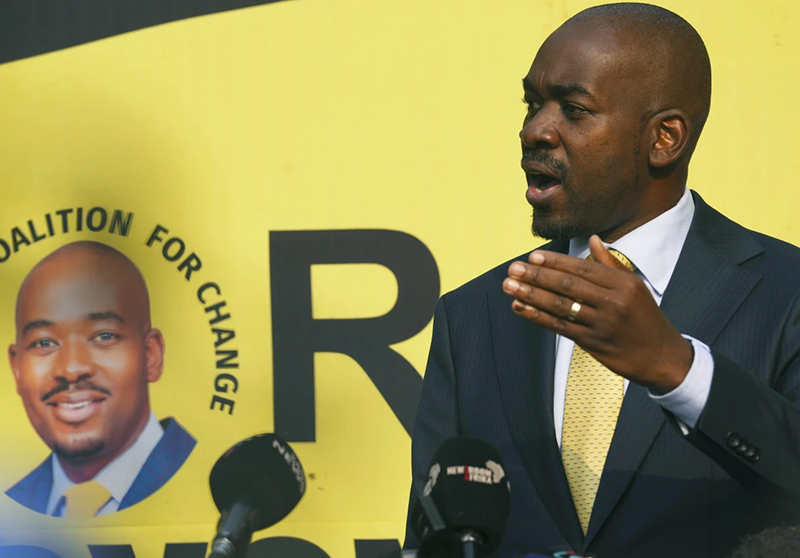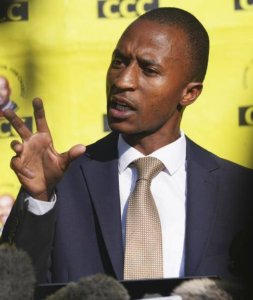- Featured
- No Comment
Chamisa’s opposition CCC party demands new election, urges regional mediation

By Reuters
Zimbabwe’s main opposition party has called for last week’s elections to be re-run, saying voting was riddled with flaws and calling on other African countries to help mediate in its impasse with the ruling party.
But the Citizens’ Coalition for Change (CCC) party did not say how it would seek to force the re-run, refusing to answer reporters’ questions about whether it would file a court case to try to overturn the disputed result.
“The only resolution and way forward… is that Zimbabwe needs a fresh and… proper election to end the current crisis,” CCC deputy spokesman Gift Siziba told a news conference.

“We have made it very clear that the entire election in this country was flawed,” he said, alleging there had been deliberate voter suppression leading to a low turnout in urban areas where the CCC tends to perform strongly.
President Emmerson Mnangagwa of the ruling Zanu PF was declared the winner in the vote late on Saturday.
Zanu PF denies that it tried to influence the outcome, and Mnangagwa has urged those with complaints about the results to approach the courts.
The elections commission said Mnangagwa received about 53 per cent of the vote against 44 per cent for the CCC’s Nelson Chamisa.
But political analysts were quick to question the credibility of those results.
Analysts say the CCC is unlikely to have much success launching a legal challenge, given the judicial system is widely viewed as being controlled by Zanu PF.
“It seems incredulous that you would approach the same court that has been condemned and expect an outcome that would be in your favour,” Chris Maroleng from Good Governance Africa said.
He said the opposition’s best bet might be for it to get Southern African regional bloc SADC to push for the elections to be re-run under international supervision, although it was not immediately clear which legal instruments SADC would rely on to achieve this.
Christopher Vandome from policy institute Chatham House’s Africa program said he was unsure the opposition would go the legal route at all.
“They are compiling their own voter tabulations, based on polling station data rather than constituency level, but this is taking time. They will want to be very sure of their evidence before they mount a challenge but the longer it takes the less public empathy they may find,” he said.
SADC’s observer mission said the elections were marred by voting delays, the banning of opposition rallies and biased state media coverage while the European Union’s observer mission said they took place in a “climate of fear”.
Zimbabwe’s foreign ministry summoned European ambassadors to Zimbabwe on Monday and told them their mission’s report was “full of misrepresentations and allegations”.
